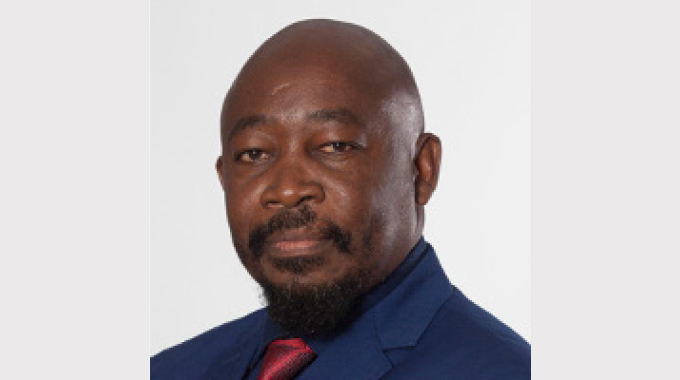Child smuggling between Zim, SA: A stubborn demon

Thupeyo Muleya Beitbridge Bureau
It is around 10 am on a Monday afternoon, in an apartment in Yeoville suburb, Johannesburg, South Africa’s city economic hub, often referred to as Mzansi or Egoli.
In that house, Jethro (not real name) is pacing around the living room, while his wife, Mutsai (not real name) is sitting on the couch folding hands.
The couple have been waiting in vain, anticipating the arrival of Mhofela (not real name), a cross-border transport operator (Malayitsha), whom they contracted for R3 000 on a Friday to smuggle their 10-year-old son to the south of the Limpopo River via the Beitbridge border post.
It being a December school holiday, like any other Zimbabwean couple, they decide to bring their only son to the “greener pastures”.
The child stayed with Jethro’s parents in Svuure Village in Zaka.
Though both parents are legally employed in the neighbouring country, as a mechanic and teacher respectively, their Grade 5 son has no passport.
Soon after skipping the border to South Africa near Gate 2, along the Limpopo River, Mhofela runs into trouble while walking on a footpath with 25 other illegal migrants, among them five children including Jethro’s son.
They come across a wounded buffalo which then attacks them, killing one man on the spot.
The group disperses in all directions, and Mhofela flees, leaving behind Jethro’s son and four other children aged 4 and 11 years.
Terrified by the smell of death, the children also fled in a different direction and hid behind a huge rock.
Mhofela last had contact with Jethro on Friday night upon arrival in Beitbridge town, and since then he has vanished into thin air.
Now the couple has tried every other avenue to reach the malayitsha without success.
Since Saturday, they hardly sleep wondering where the transporter could be with their son.
Following the attack on the group by the buffalo, the deceased man’s body was recovered on Saturday morning.
The five children were also picked from their hiding place by a search team.
On the other hand, Mhofela continues with his journey on Saturday, without bothering to look for the three children.
Fearing arrest for facilitating illegal migration, if he approaches the department of immigration or the police, the man moves on with his life.
Soon after getting to Johannesburg, he changes his contact numbers from MTN to Cell C and moves to stay in another suburb in the same city to avoid questions by relatives of the people he was illegally transporting.
Jethro’s son and four others are later found by a search team on Saturday that had come to collect the remains of the man who was attacked by the buffalo.
The team hands them over to South Africa’s department of Social Services, which does initial counselling and conveys them to Zimbabwe’s social services team, which houses them at the Government-run Reception and Support Centre.
After two weeks Jethro and Mutsai are reunited with their son following thorough investigations and vetting by authorities from both countries.
The other four children remain in the facility pending further checks as well.
The couple and their son’s scenario, is just but a drop in the ocean of the challenges and dangers associated with child smuggling and illegal migration.
The acting head of immigration (Zimbabwe) at Beitbridge, Assistant Regional Immigration Officer (ARIO), Mrs Canisia Magaya said between March 26 and April 5, they intercepted 59 children at Beitbridge Border Post while being transported to either country.
“We are relenting in our efforts to minimise irregular migration through the border. Of the 59 intercepted between March 26 and April 5, 28 were boys and 31 were girls. In addition, seven crossborder operators were fined for facilitating illegal migration,” said Mrs Magaya.
“During the same period, we also intercepted 10 undocumented Malawians and three Congolese nationals and they have been taken to court for prosecution.”
She said the movement of children was common during major and school holidays in both countries.
Mrs Magaya said the department had deployed enough manpower within and along the border to curb border jumping.
She said they were also having joint roadblocks, working together with other stakeholders to round up those using the border flanks to illegally immigrate and migrate.
The senior immigration official advised parents to ensure their children have valid travel documents and, in the event that they are not travelling with them, they need to adhere to the legal requirements for such kind of clearance.
“Those with kids should have requisite documents, for instance, those travelling with guardians should in addition to a valid passport, have a copy of the child’s birth certificate and affidavits from the parents giving consent to have the minors travel with them,” said Mr Magaya.
“For one parent travelling with the child, an affidavit of the non-travelling parent is required, together with copies of the ID/passport of the parents.
“We also urge them to desist from using undesignated crossing points as children’s lives are precious and as parents we should guard the sanctity of life at all costs. Sending them through the river and the forest is risky as a lot of criminal activities take place there.”
Zimbabwe’s Ambassador to South Africa, Mr David Hamadziripi, said the Consulate in Johannesburg is a standing member of the Zimbabwe-South Africa Cross Border Coordination Forum on Unaccompanied and Separated Migrant Children.
He said such a coordination mechanism was critical in bringing together representatives of the two governments as well as other stakeholders, including multilateral agencies and civil society organisations.
They also meet on a quarterly basis, alternatively in Zimbabwe and in South Africa with the departments responsible for Social Welfare in the case of Zimbabwe and for Social Development in the case of South Africa.
“The consulate attends and participates actively in these meetings where discussions focus on strengthening cross border instruments and mechanisms for migrant child protection and support.
“They work very closely with the Department of Social Development and other partners in facilitating the reunion of unaccompanied and separated migrant children with their families.
“We want to encourage parents and guardians to take all necessary measures to ensure that their children travel under regular, safe and secure conditions. Failing to do so places these children in very dangerous, vulnerable and risky situations,” said the ambassador.
It is estimated that there are over 200 illegal crossing points along the Shashe and Limpopo Rivers which separate Zimbabwe from Botswana and South Africa.
Beitbridge traditional leader Chief Tshitaudze, whose jurisdiction covers some areas along the Zimbabwe-Botswana and South Africa borders, said it was sad that some parents were exposing their children to criminals along illegal crossing points.
“A number of drownings occur during the rainy season, when border jumpers try to cross to either Botswana or South Africa.
“I want to urge traditional leaders and other members of the community to relay critical information relating to illegal migration to the police.
“Those among us, who are in the habit of harbouring border jumpers at their homesteads or are facilitating such acts must be called to order,” he said.
Limpopo police and the newly formed Border Management Authority are also carrying out security patrols in South Africa to curb the illegal movement of people between the two countries, especially children.
“The Border Police Team, through Disruptive Operation Vala Umgodi, has seized one ferry at the river bank of Limpopo River between Zimbabwe and South that is believed to be used for smuggling counterfeit goods crossing the border between the two countries,” said Limpopo police spokesperson Colonel Malasela Ledwaba.
“The ferry was ultimately destroyed in fire for disposal purposes. Additionally, 11 male foreign nationals aged between 18 and 46 years were arrested on April 6 for contravention of the Immigration Act at Modimolle in Waterberg District and Beitbridge Port of Entry respectively.
“The foreign nationals arrested for contravention of the Immigration Act will be referred to the Department of Home Affairs for Immigration Officers to process them for a direct deportation back to their countries of origin.”
Matabeleland South’s head of social services, Mr Criswell Nyakudya said at Beitbridge, they were handling all issues to do with the unaccompanied migrant children.
These include counselling, contact tracing, assessment of needs, the environment in the sending areas, escorting the children to their homes and the re-unification of children and their parents.
He said Government was considering prosecuting all those parents caught subjecting their children to child smuggling.
The experience the children are going through, Mr Nyakudya said, was traumatising in some instances.








Comments